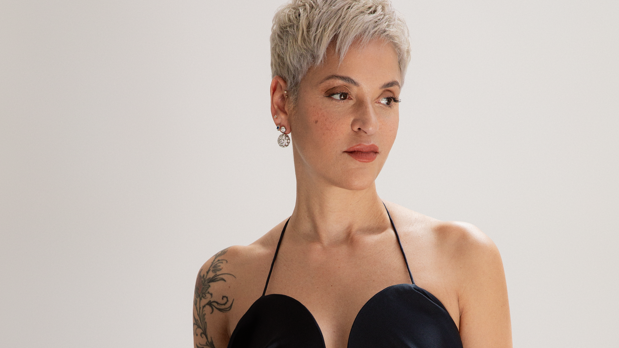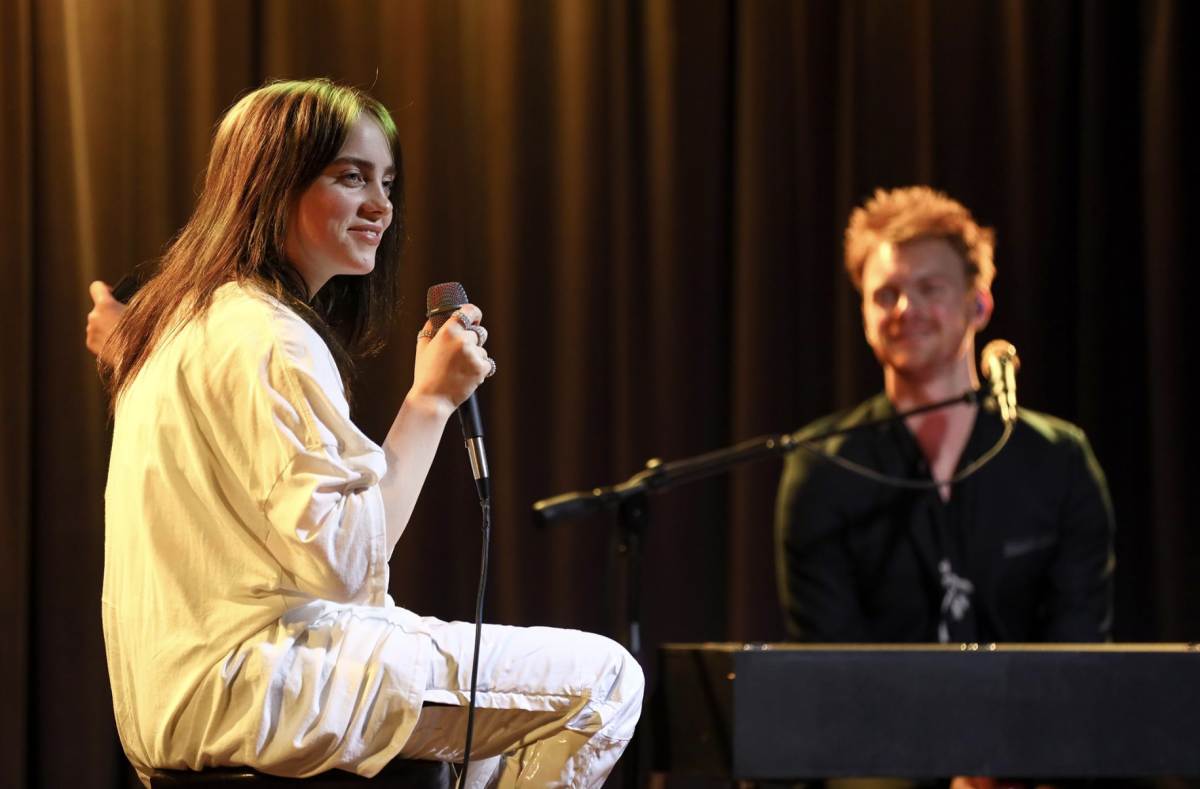What started as a particularly chilly October night ended as a night filled with magic, nostalgia and ‘saudade.’ On Tuesday, Oct. 8, the Portuguese New Fado superstar Mariza graced UMass Amherst’s Tillis Hall with songs of melancholy, joy, longing and hope. After almost a decade-long hiatus, it felt as though she never left the stage.
Singing in Portuguese, accompanied by a beautiful acoustic ensemble, Mariza’s powerful opening captivated the audience, her voice going beyond the barriers of language. While staying true to her Fado roots she also celebrated her African heritage. Mariza carries her Fado in a way that no other Fadista has before. Her raw, powerful alto gave new life to Fado, having a voice unlike any Fadista before her.
One melancholic accordion solo seamlessly transitioned into “Meu Fado Meu,” a song from Mariza’s debut album, “Fado Em Mim.” The venue’s dim lighting pushed the audience to engage with the music on an auditory level as Mariza’s voice weaves into the melody. Despite the expectation that she would only sing her greatest hits or an Amalia Rodrigues tribute, she introduced her audience to a newer, more contemporary sound while maintaining the Fado essence.
Paying homage to her African heritage, Mariza sang a Morna song. Morna is a traditional Cape Verdean music genre and practice defined by The United Nations Educational, Scientific and Cultural Organization (UNESCO) as a fundamental aspect of Cape Verdean life and culture. The song is one of longing; about wanting to bridge the gap between Cape Verde’s capital São Vicente and Lisbon.
Mariza also pays tribute to Angolan songwriter Matias Damásio with, “Quem Me Dera” a song about love that didn’t happen, delivered with tear-jerking sincerity. The song was given to the singer as a gift from Damásio. Mariza’s connection to her quintet brought the song to life, each adding depth to the story they were telling together.
In a more intimate moment with the crowd, Mariza reminisces about her childhood in Mouraria, Lisbon, where she started singing Fado at the age of five. She shared her journey from a young girl with a love for the genre, to her teenage years when she garnered attention and notoriety. The singer also opened up about her struggles during the pandemic, revealing a more vulnerable side.
“What is going to happen to our lives, to the world?” she asked, her voice heavy with uncertainty that she felt during those dark times. The audience fell silent as she spoke of her mental breakdown and her own search for meaning during that time.
Mariza’s concert wouldn’t have been complete without a tribute to the legendary Fadista, Amalia Rodrigues. Her rendition of “Lagrima” was bittersweet, filled with the complex emotions that define Fado. Mariza’s voice, without a microphone, filled the hall as she sang “Chuva,” a song about lost love. The audience was starstruck by her ability to project her voice with such power without a microphone, with technique reminiscent of the great Dionne Warwick.
As the night progressed, Mariza sang a song from her upcoming album, inspired by a poem that left the audience reflecting on the power of words. “If you don’t know how to use words, they are like stones, they hurt. But if you use them with love, they become kisses,” she said. It was a performance that showcased her dedication to her craft, transforming words into music and pain into poetry.
Mariza’s performance of “Oiça Lá Ó Senhor Vinho,” a joyful song about the dangers and fun that drinking wine will cause, summoned the atmosphere of a happy tavern where Fado songs would come from. The audience raised imaginary wine glasses and toasted to life, love, prosperity and Mariza’s infectious energy.
Would it truly be a Mariza concert if she didn’t end the night with “Gente Da Minha Terra?” the Amalia Rodrigues song that became Mariza’s most loved song. As she sang the final notes, the audience applauded thunderously, filled with the joy of having witnessed something truly special. It wouldn’t have been a Mariza concert if it didn’t end in magic, nostalgia and ‘saudade.’
Victoria Cabral-Mação can be reached at [email protected]







